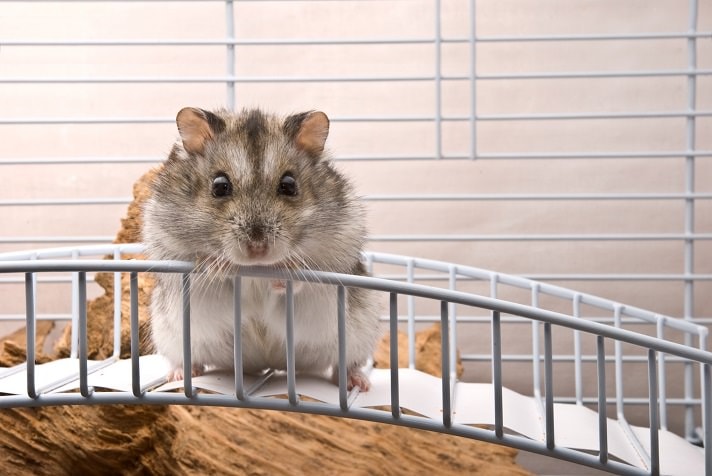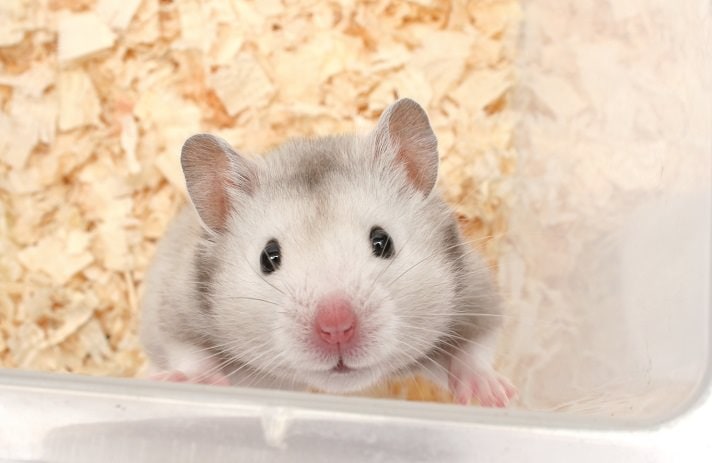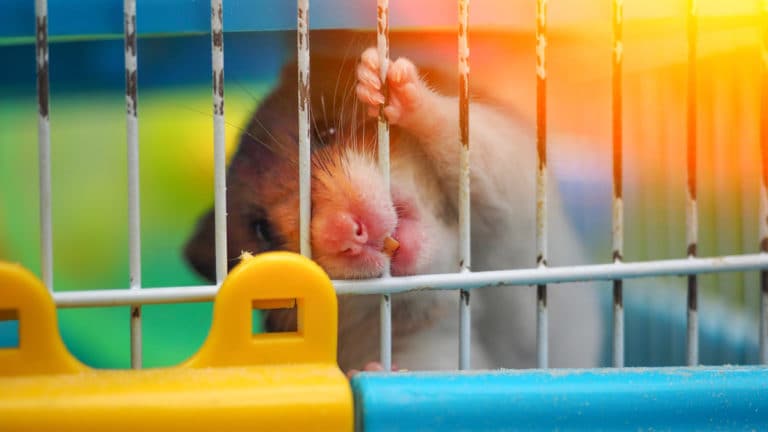Q.
I have a question about caring for hamsters. We have had four of them since February of this year that have died within a month of bringing them home. We come home from work or wake up in the morning and the hamster has passed, no signs of any illness at all. The last one we bought was a panda bear Syrian, on the day she was 6 weeks old and weaned. We returned home from work and found her barely breathing, was unable to move, and defecating (not diarrhea) and urinating all over herself. She was also slightly cold to the touch. Prior to that evening, even that morning, she behaved normally and had no signs of illness. We cleaned her up and swaddled her in a dishcloth to keep her warm. We also tried continually to get her to drink, but she would not. She passed five hours later.
I am wondering if there is something we are doing wrong in their caretaking. The hamsters have each been in their own new, ventilated hamster cage that is cleaned weekly. We use a cellulose-based bedding (not wood bedding), their water bottles are cleaned weekly, and fresh water and hamster food are provided daily, as well as interaction with them on a daily basis. The cages have never been near a window or door because of drafts. I’m unsure if we will be buying any more hamsters until we can figure out if it is something we are doing wrong, although we enjoy them very much.
A.
I am very sorry for the loss of your hamsters. When hamsters die that quickly, without any signs of disease, they have either come into your home very sick or have been exposed to a very severe toxin in your home. Your care sounds very good and toxin exposure sounds non-existent.
Usually, when hamsters die very quickly once coming to a new home, they develop diarrhea due to bacterial causes and then die due to loss of nutrients, fluids and electrolytes. This does not seem to be what is happening to your hamsters.
The best way to determine what caused your hamsters to die is a veterinary procedure called a necropsy (animal autopsy). Although we do not always get every answer, the necropsy can tell us many things about why a pet has died. To get the best results from a necropsy, the tissue needs to be fresh and, therefore, done within a day or two of the pet’s death.
Posted by: Chewy Editorial
Featured Image: Olena Kurashova
Share:









